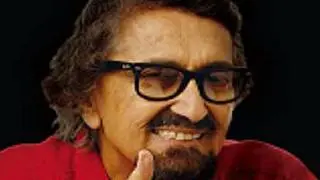If only the author, Atulya Misra, had prefixed the word ‘the’ to the title, it could have easily passed off for a Robert Ludlum novel.
Though the first few pages are ‘wow’-worthy, the book soon sputters and, sigh, loses life. Possibly, the author, a busy bureaucrat with a desire to write, had a plot in mind, set pen to paper and then, perhaps unable to give it the necessary time, just said to himself, ‘heck, let me finish it anyway’.
It is a pity, because the author truly hooks the reader in the first chapter. It starts with the narrator, a retired bureaucrat, intrigued by the familiar face of a shy, reclusive man, while holidaying in Andaman Islands. Thinking hard, he guesses the man’s identity as Ravi Chandran Bose, who is the protagonist of Oxygen Manifesto (Rupa Publications; Pages: 195; Price: ₹495). “I had netted a bigger fish than I thought,” the narrator (who is not named) says — and gets to work, which is to dig up the said Bose’s past.
Authors live their fantasies through their characters. The narrator says “the life of a traveller and a seeker has always appealed to me”; it is possible that author Misra was thinking of himself as he wrote the words. The investigation begins in war-torn Afghanistan, the country of residence of Dr Arumugam, brother-in-law (sister’s husband) of Bose.
Here is where the book begins to turn torpid. The author could have delighted the reader with a vivid picture of the present-day Afghanistan. Instead, what the reader gets is a few staid, wikipdeia-sque paragraphs of “colourful buses with big mounds of luggage” of Kabul and breads and tea of the city. The narrator lives in Kabul “for months” unable to trace Dr Arumugam and then, suddenly bumps into him. For all his troubles, the narrator gets references of people who can tell the narrator more about Bose.
One of them is Rhea, Bose’s sister-in-law (wife’s sister). Rhea, who, it so happens, leads a nomadic life with her partner in Mongolia. Off goes the narrator to Mongolia. The author makes a half-hearted attempt to sketch-out Mongolia, and the reader is treated to yak milk and memories of Ghenghis Khan. The narrator finally catches up with Rhea who is camping in the Gobi desert, and learns a little more about Bose.
The next pit-stop is Czech Republic, where Bose’s vegan son is a caravan-housed yoga teacher. The narrator learns more about Bose.
But who is this Bose? He is an IAS officer, posted first in Manipur and married to a Manipuri woman, Tara. There lives also the second of the two principal characters of the book, Thatha — a single, old man, who spends all his time re-foresting the degraded lands, all by himself, near Moreh, a town that has a Tamil population.
Inspired by Thatha, and troubled by all the depredations he sees around him, Bose starts a political movement that is guided by his ‘Oxygen Manifeso’. It is a people’s movement with none of the bells and whistles of the regular political parties, which Bose spearheads (while still being in government service) with practically no money. The rest of the book is Bose’s rants and platitudes, revealed through his diary, about how wrong things are and how they ought to be. Come Lok Sabha elections, the movement shocks the world with an overwhelming win, whereupon Bose hands over the reins to the people and quietly fades away into oblivion.
Oxygen Manifesto , is a utopian dream presented as a story — only there is no story.







Comments
Comments have to be in English, and in full sentences. They cannot be abusive or personal. Please abide by our community guidelines for posting your comments.
We have migrated to a new commenting platform. If you are already a registered user of TheHindu Businessline and logged in, you may continue to engage with our articles. If you do not have an account please register and login to post comments. Users can access their older comments by logging into their accounts on Vuukle.